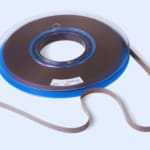Physical Tape to Virtual Tape Migration
Why are so many considering a tape to cloud project? With the rapid rise in capacity of storage drives, combined with the equally rapid reduction in the price per TB in acquisition costs, many companies have opted for disk-based backups, where once backup tapes were used. These disk backups are easy to implement, making the conversion strategy away from tape also easy to implement. The question becomes, what to do with the existing backup tapes that are sitting around requiring maintenance contract on legacy equipment and software, while occupying expensive real estate?
Let S2|DATA migrate your physical tape to one of several virtual tape format options.
What are my options?
Physical Tape to Virtual Tape on Cloud Storage
Whether it is AWS, Azure, Google, or some other Cloud provider you use, the long-term costs associated with retaining physical backup tapes easily add up to exceed that of long-term Cloud storage. This tape to cloud solution would allow you to retire those physical tapes, and the costs that come with them.
Physical Tape to Virtual Tape on Local Disk
You can also keep backup tapes on local disk, and the migration process is the same. The only difference is where the backups reside.
You Can Also Migrate Tape To New High Capacity Tape
Just like disk storage, the storage capacity on backup tapes has dramatically increased and the price per TB of data stored on tape has decreased. The latest generation of LTO tape will store 45TB or more, per tape cartridge, at a fraction of the cost of disk storage. Not to mention, tape is air-gapped, so it is protected from issues like Ransomware or infection by Virus or Malware. There is a still a significant use case for tape, both technically and financially.
Here’s a great article from TechTarget about the things you should think about when considering a tape to cloud migration project.
Do I need the same backup software that created the tapes?
Not necessarily!
If you are still using the same backup software and would like to continue using it for your backups in the Cloud, then we can work within the capabilities of your existing application so that you can use it for your virtual tapes after the conversion.
If you have already moved off of your legacy backup software application that created the tapes, that’s not a problem! TRACS will read and convert your physical tapes to virtual tapes without needing to use the software that created them.
If you do not have the catalogs to let you know what’s on the tapes, that’s not a problem either. In addition to converting physical tape to virtual tape, TRACS will catalog the tape contents, which can be provided to you in file format, or hosted in Invenire for you to login and view at your leisure.
What if I want to keep my tapes?
No problem at all. Depending on retention and storage requirements, it may not make sense to undertake a migration effort. TRACS Is able to read the contents of your backup tapes without requiring the use of the software that created them. If you are still paying to maintain legacy equipment
and are paying licensing and support fees for your legacy backup software, you can now stop! The cataloging and restoration features of TRACS means you can free up that money for other priorities without the fear of not knowing how to restore your legacy tapes, should that be needed.
We moved to the Cloud, but now we want to go back to Tape.
We get it. Cloud storage has its uses, but it isn’t applicable to every scenario. We can assist in moving some or all of your virtual tapes back to physical tape and take advantage of the significant increases in the storage capacities of modern tape.
What if I want to delete un-needed backups during the conversion?
Deleting unnecessary data = reducing company risk! We highly encourage this practice and are happy to use our experience and expertise in the legal discovery area to consult on, and assist with the deletion of data with no current business use. Give us a call and we can talk through it.
Download Tape to Cloud Flyer
The Latest from S2|DATA
What we do
We provide legacy data solutions to some of the world’s leading organizations.
Why we do it
We believe companies should have total command of their legacy data.






